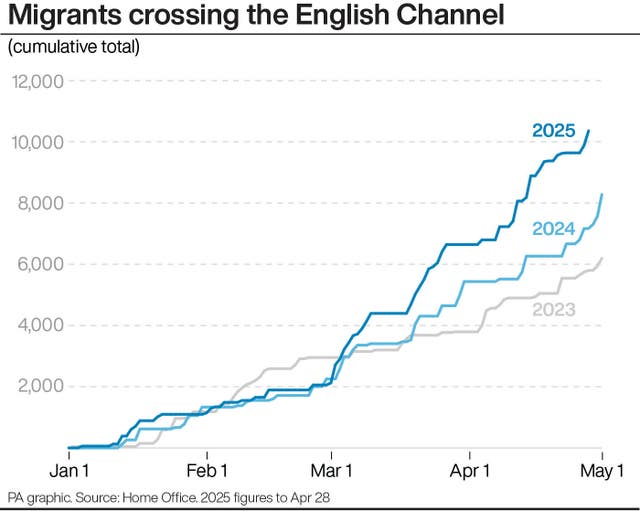Human rights laws could block removing sex offenders from UK, Cooper suggests
The Government plans to bar migrants convicted of sexual offences from being able to claim asylum in the UK.

Human rights laws could still be an obstacle to removing foreign sex offenders from the UK, the Home Secretary said, as she suggested changes could be needed to the way the rules are interpreted.
Yvette Cooper is seeking to change the law so that migrants convicted of a crime which places them on the sex offenders register, regardless of the length of their sentence, will be denied refugee status.
Under the Refugee Convention, countries can refuse asylum to some such as war criminals and those who have committed a “particularly serious crime” who present a danger to the community.

Currently in the UK, this is categorised as a criminal handed a prison sentence of one year or more.
It is hoped the amendment will send a clear message that sex offences are treated with the “seriousness they deserve”.
But asked whether sex offenders could be stopped from using the European Convention on Human Rights (ECHR) to appeal against their removal, Ms Cooper told Times Radio about steps the Government has been taking to increase removals, adding: “Of course, there are often other obstacles that are put in the way of different kinds of returns and removals, but that’s why we’re working so hard to seek to remove those.
“But the first step is to remove somebody’s entitlement to asylum protection in the first place if they have committed these serious crimes.”
It comes as the Government is reviewing the use of Article 8 of the ECHR, the right to private and family life, in immigration cases in the UK.
It is particularly focusing on cases where ministers have disagreed with conclusions reached in the courts, after several deportation attempts have been halted by how the ECHR clause has been interpreted in UK law.
On Tuesday, Ms Cooper said she believes “it is possible to change the way” in which rules around the right to a family life are being interpreted.
Asked whether she has confidence that the review will change how the ECHR works in this country, she told Times Radio: “I do believe it is possible to change the way in which Article 8 is being interpreted.
“Because in practice, what’s happening is it’s partly about the way in which our laws are operating, it’s about the way in which, I think that there’s been a bit of an abdication of responsibility to set down the way in which our laws should operate, and too much has been left to ad hoc decisions by the courts.
“But look, that review is under way at the moment, we will bring forward the conclusions.”
Speaking to BBC Radio 4’s Today programme, Ms Cooper said the Government is reviewing the issue because respect for family life is “supposed to be balanced against other issues”, including against the public interest, Government and Parliament to set policies, and respect for border security.
“We do think it is possible to have a stronger framework that is set out around the way in which international law should be interpreted,” she said.
“We obviously continue to comply with international law, but it’s about how it is interpreted.”





